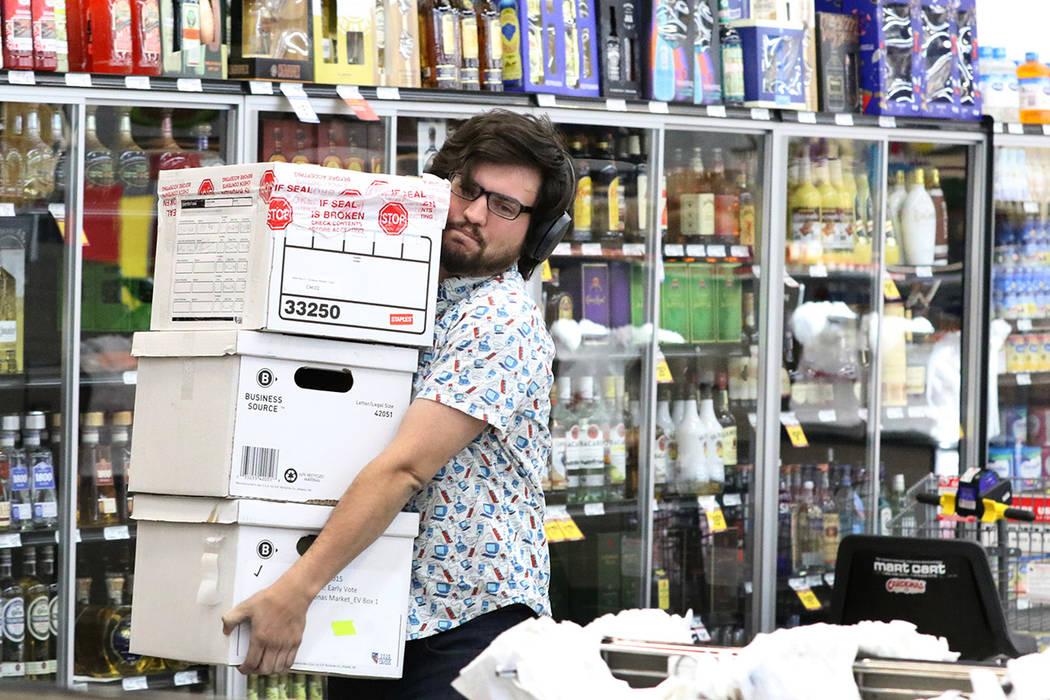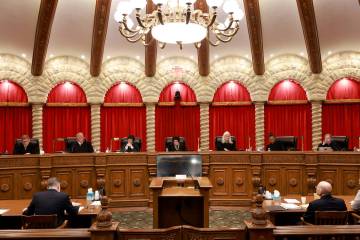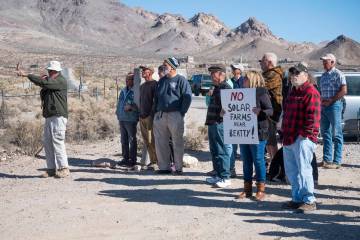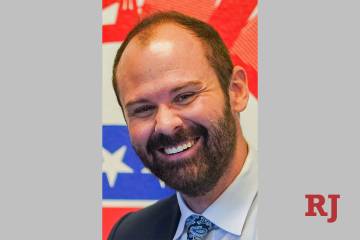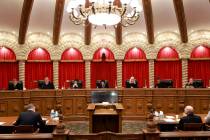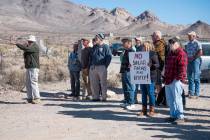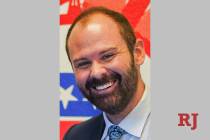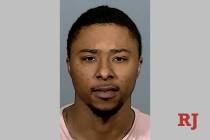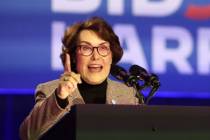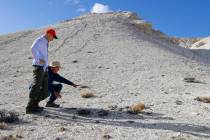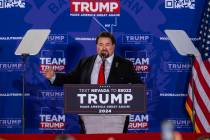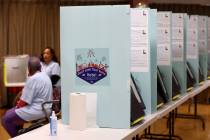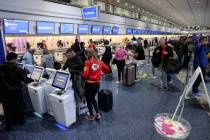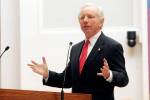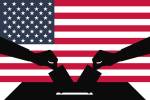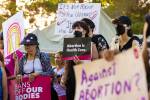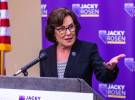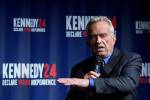Nevada caucuses hold key to state’s political future
The eyes of the nation are now focused, however briefly, on Nevada.
National news programs are broadcasting live from the Las Vegas Strip. Democratic presidential candidates are hosting back-to-back events all over town and the state. Candidates took to the debate stage at the Paris hotel-casino, and President Trump has scheduled a counter-programming visit and rally.
For just this week, Nevada has been and will be the center of the political universe. And it all comes down to Saturday’s caucus, the third event on the Democratic nominating calendar in the 2020 cycle.
After the disaster that was the Iowa caucus — and revelations that Nevada had a plan, since scrapped, to use an app similar to the one that failed so badly in Iowa — the Nevada Democratic Party scrambled to come up with an alternative.
The party has arrived at a caucus calculator powered by Google and pre-loaded into iPads that is expected to help caucus volunteers and staff tabulate the votes cast early and on caucus day.
But there are still warning signs that Nevada could be in for a very long night, and maybe worse.
No promises
Democratic National Committee Chairman Tom Perez told The Associated Press that the state party wouldn’t commit to releasing unofficial delegate counts after Saturday’s caucus, because it wants to prioritize accuracy over speed. One of the factors is the especially high turnout — about 75,000 votes were cast in four days of early voting, the first time that option has been used in a caucus anywhere.
“We’re going to do our best to release results as soon as possible, but our North Star, again, is accuracy,” Perez said.
“We understand just how important it is that we get this right and protect the integrity of Nevadans’ votes,” said Shelby Wiltz, caucus director for the state party, in a statement.
And Rep. Dina Titus, who, like other officials, expressed confidence that the party would conduct a successful caucus, said officials in Nevada know the stakes.
“They just know all eyes are on us, and if we want to go first and keep the caucus, we’ve got to pull this off,” she said.
In fact, former Nevada Sen. Harry Reid, whose influence led Nevada’s caucus to move to a much higher position on the Democratic nominating calendar starting in 2008, said in an interview that he thinks Iowa’s position as the first state on the calendar has been jeopardized, and Nevada could move even higher.
“I think we have a tremendously good case now,” Reid said in an interview with NPR. He said Nevada is more diverse and better reflects the party’s current membership than either Iowa or New Hampshire. In fact, boosting Nevada over the first two traditional states has long been a Reid talking point.
You “get a false perception of what’s happening around the country when you have those two states determining what’s going to happen in a presidential election,” Reid said in the NPR interview. “I don’t think it’s fair.”
But, if Nevada does get to go first, how will it be voting? With a caucus, or a primary election?
Nevada’s last caucus?
“I think this is the end of the caucuses, and it should be,” said Billy Vassiliadis, a longtime Las Vegas political insider and adviser to the last two Democratic presidents.
Vassiliadis said both parties are likely to realize caucusing is an antiquated system that no longer represents how most people live their daily lives.
“People read the R-J, go shopping and order food online now,” he said. “Everything is easy and convenient. We — especially the younger generations — do not want to get in our car and go someplace when we can do it at home.”
Vassiliadis said he expects the Nevada Democrats will pull off a strong caucus devoid of the drama that plagued the Iowa caucuses earlier this month. But he thinks the party should make new plans for the organizing and fundraising boons the caucus system can provide a statewide party.
“I’m old-fashioned in this sense: If you’ve got a good message and you’re getting out there, the process should not be a hindrance to voters,” he said.
Former Vice President Joe Biden said in an interview with the Review-Journal while campaigning on Friday that he has some concerns about the accuracy of the results in the upcoming caucus, as well as some doubts about the systems future in this country.
“I have much more confidence in the outcome — in terms of being on the button, totally accurate — of a primary than I do a caucus, but we’ll see,” Biden said.
Asked if he thought caucuses would go extinct after 2020, Biden said he did.
“I have to tell you honestly I think that’s the judgment the American people are going to make,” he said, citing voters having to understand viability and the perception that more mistakes can happen during a caucus as examples.
Switch to a primary!
During the early voting period, some voters spoke out against caucusing in interviews with Review-Journal reporters.
“Going to the caucus was the worst thing we ever did in Nevada, and we’ve done some dumb things,” Kay Darr said Tuesday as she waited in line to caucus at Enterprise Library.
Bobby Bell, who caucused early at Cheyenne High School on Tuesday, said he would like to see the caucus system ended in Nevada.
“Back in the old days, people wanted to do it themselves and be there for the entire process,” Bell said. “But all the people who go to the caucus — they are still a tiny percentage of the actual voters. We should vote ourselves.”
Most of Nevada’s state and federal elected Democrats have expressed their faith in the state party’s ability to pull off this week’s caucuses, but they have not widely speculated on the system’s future.
Reid also addressed the future of the caucus on Saturday, shortly after becoming one of the first voters to ever caucus early in Nevada.
“The (early voting) program’s going to make Nevada look good,” Reid said. “We’re going to have a great early vote, and I think the country will look to us in the future. I think in the future, as many pundits have said, we’ll be the first state to have a primary.”
Reid said he believes the failures of the Iowa caucuses will not repeat themselves in Nevada. However, he said that after the Super Tuesday states vote on March 3, the party will consider whether it should change to a primary system.
One factor in the deliberations: The caucus is a much more interactive process, one that has allowed Nevada Democrats to sign up new voters, add to voter lists and help turn out the vote on Election Day. A switch to a primary would end many of those advantages.
Contact Rory Appleton at RAppleton@reviewjournal.com or 702-383-0276. Follow @RoryDoesPhonics on Twitter. Review-Journal Politics and Government Editor Steve Sebelius contributed to this story.



